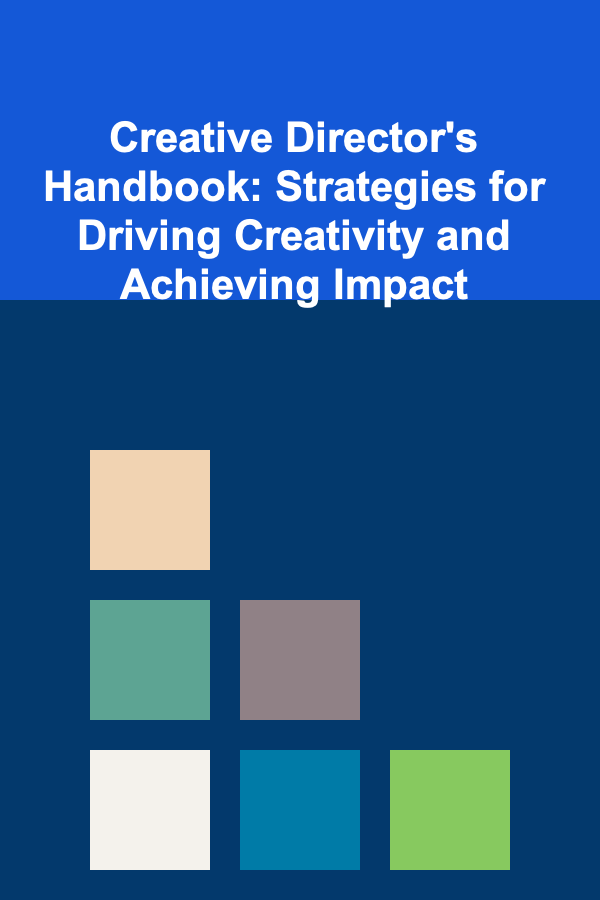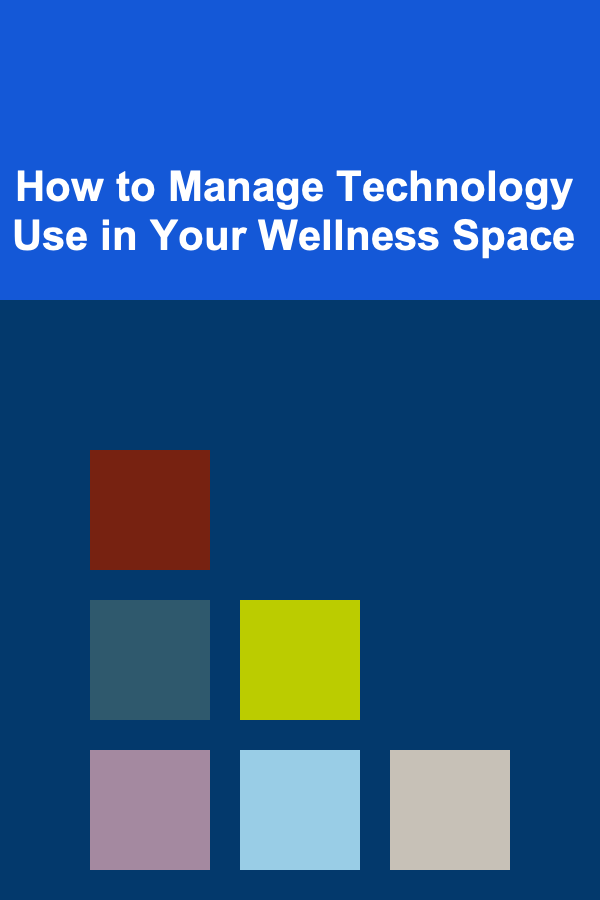
How to Ace Your Quality Assurance Manager Interview
ebook include PDF & Audio bundle (Micro Guide)
$12.99$9.99
Limited Time Offer! Order within the next:
Not available at this time

The role of a Quality Assurance (QA) Manager is a vital one in any organization, responsible for overseeing the quality of products, processes, and services to ensure that they meet or exceed industry standards. A successful QA Manager ensures that the company's products are both reliable and functional, preventing issues before they arise. If you are preparing for an interview for a Quality Assurance Manager position, there are specific strategies and insights that can help you stand out and demonstrate your qualifications for this key leadership role.
In this article, we'll guide you through some essential steps to ace your QA Manager interview. From preparing for the questions to understanding the key responsibilities, we'll cover everything you need to know to approach your interview with confidence.
Understand the Role of a QA Manager
Before entering any interview, it's crucial to understand the core responsibilities of the role you're applying for. As a Quality Assurance Manager, you will oversee the QA processes, design test strategies, manage teams, and ensure that the organization's products meet the required quality standards.
A QA Manager often has to:
- Lead and mentor a team of QA engineers and testers.
- Collaborate with product, development, and operations teams to understand the goals of each product.
- Develop and enforce testing protocols, including automated and manual testing strategies.
- Oversee the creation of detailed documentation for test cases, procedures, and results.
- Identify defects in products or processes and suggest corrective actions.
- Continuously improve processes and methodologies to ensure optimal performance and quality.
A solid understanding of these responsibilities will help you tailor your interview responses to highlight your relevant skills and experience.
Tip: Research the company's specific industry and products to gain insight into the specific challenges they face in maintaining quality. This information will help you anticipate role-specific questions and demonstrate your preparedness.
Prepare for Common QA Manager Interview Questions
QA Manager interviews often feature questions that assess both technical expertise and leadership capabilities. Here are some common questions you may face and tips on how to answer them:
2.1. Tell me about your experience in QA and quality management.
This is an introductory question that aims to assess your background and experience. When answering, briefly summarize your relevant experience, including the projects you've worked on, the types of testing methodologies you've used, and any managerial experience.
Example Answer: "I've been working in QA for over 7 years, and in the last 3 years, I've been leading teams as a QA Manager. In my previous role at XYZ Corp, I oversaw a team of 10 QA engineers and led the implementation of both manual and automated testing strategies for our software products. I'm well-versed in tools like Selenium, JIRA, and TestRail, and have worked across various industries, including e-commerce and healthcare."
2.2. How do you manage a team of testers?
The interviewer wants to understand your leadership style. A QA Manager is not only responsible for the testing process but also for managing a team, so focus on how you ensure productivity, collaboration, and development within your team.
Example Answer: "I believe in a collaborative and supportive leadership style. I ensure open communication channels with my team to discuss challenges, successes, and the tools or resources needed to succeed. I also set clear expectations, provide feedback, and encourage team members to improve their skills through training. For instance, I initiated bi-weekly knowledge-sharing sessions to help team members stay updated on the latest testing practices and tools."
2.3. How do you handle tight deadlines and pressure?
In the world of QA, timelines can be tight, especially as product releases approach. The ability to manage time effectively, prioritize tasks, and stay calm under pressure is critical for success in this role.
Example Answer: "Time management and prioritization are key. I break down complex projects into smaller tasks and assign deadlines accordingly. I always keep track of testing progress and reallocate resources if necessary to avoid bottlenecks. During high-pressure periods, I stay calm, focus on the most critical tests first, and ensure transparent communication with stakeholders about progress and any potential risks."
2.4. How do you approach test strategy and test case design?
QA Managers are responsible for designing and implementing test strategies. Your answer here should highlight your ability to create effective testing methodologies that align with the company's goals.
Example Answer: "I start by thoroughly understanding the product requirements and specifications. From there, I work with the development and product teams to define clear acceptance criteria. I then create a comprehensive test strategy that includes both functional and non-functional testing, covering test cases, edge cases, and performance testing. I also ensure test cases are well-documented, reusable, and cover the application end-to-end."
2.5. Tell me about a time when you identified a critical bug or issue late in the development process. How did you handle it?
This question assesses your problem-solving skills and your ability to manage a crisis. Your response should focus on how you maintained professionalism and found a solution under pressure.
Example Answer: "In my previous role, we identified a critical bug in a payment gateway feature just days before the product release. I quickly organized a triage meeting with the development team to investigate the root cause. We then created a focused action plan to fix the issue, perform regression testing, and verify the fix. I also communicated regularly with stakeholders to keep them updated on the progress, ensuring we didn't miss the release deadline."
Showcase Your Technical Skills
While leadership skills are essential for a QA Manager, technical expertise is also crucial. Be prepared to discuss the tools, technologies, and methodologies you've used in your QA practices.
Key Technical Skills to Highlight:
- Automated Testing Tools: Familiarity with automation tools like Selenium, TestComplete, or QTP is highly valuable.
- Programming Languages: Knowledge of programming languages such as Java, Python, or JavaScript can be a plus, especially if you have experience writing automated test scripts.
- Bug Tracking and Test Management Tools: Mention tools like JIRA, Bugzilla, or TestRail that you've used to report and track defects, as well as manage test cases.
- Continuous Integration (CI) and Continuous Testing: Demonstrate your understanding of CI/CD pipelines and how automated testing integrates into the development process.
- Performance Testing: Familiarity with performance testing tools like LoadRunner or JMeter is a plus, especially for software that handles high volumes of traffic or data.
Tip: Don't just list tools---be prepared to discuss how you've used them to solve specific challenges in your past roles.
Emphasize Soft Skills and Leadership Qualities
In addition to technical skills, a QA Manager needs to possess strong leadership abilities. Here are some qualities that you should emphasize during the interview:
4.1. Communication Skills
As a QA Manager, you will need to communicate effectively with both technical and non-technical teams. Highlight how you ensure everyone is aligned and understands the QA process.
4.2. Problem-Solving Skills
QA Managers are often tasked with identifying and solving complex issues. Emphasize your ability to think critically, stay calm under pressure, and find innovative solutions.
4.3. Adaptability
The tech landscape is constantly changing, and the ability to adapt to new tools, technologies, and methodologies is crucial for success. Show that you are flexible and open to continuous learning.
4.4. Team Building and Conflict Resolution
A QA Manager is often a mediator between different teams, resolving conflicts and building collaboration. Share examples of how you've successfully managed team dynamics or resolved conflicts in the past.
Ask Insightful Questions
At the end of the interview, when you're given the chance to ask questions, be sure to ask thoughtful and insightful questions that show you're genuinely interested in the role and the company. Here are some examples:
- "How does the company approach continuous improvement in the QA process?"
- "What challenges does the QA team currently face, and how can a new manager address them?"
- "What are the key performance metrics for success in this role?"
- "Can you describe the collaboration process between the QA team and other departments like development and product?"
Conclusion
Acing your QA Manager interview requires a blend of technical expertise, leadership skills, and the ability to navigate the challenges of the role. By thoroughly understanding the responsibilities of a QA Manager, preparing for common interview questions, showcasing your technical skills, and emphasizing your leadership qualities, you can confidently demonstrate your qualifications for the role.
Remember that the interview is not just about your technical knowledge, but also about your ability to manage people, communicate effectively, and ensure that quality is maintained across all products and processes. By following the tips outlined in this guide, you'll be well on your way to acing your Quality Assurance Manager interview and securing the role.

Creative Director's Handbook: Strategies for Driving Creativity and Achieving Impact
Read More
How to Care for Your Home's Air Conditioning System
Read More
How to Manage Technology Use in Your Wellness Space
Read More
How to Organize Your Bathroom for Stress-Free Mornings
Read More
How to Start a Family Budget Without Conflict
Read More
Navigating Environmental Challenges: A Consultant's Guide to Sustainable Solutions
Read MoreOther Products

Creative Director's Handbook: Strategies for Driving Creativity and Achieving Impact
Read More
How to Care for Your Home's Air Conditioning System
Read More
How to Manage Technology Use in Your Wellness Space
Read More
How to Organize Your Bathroom for Stress-Free Mornings
Read More
How to Start a Family Budget Without Conflict
Read More